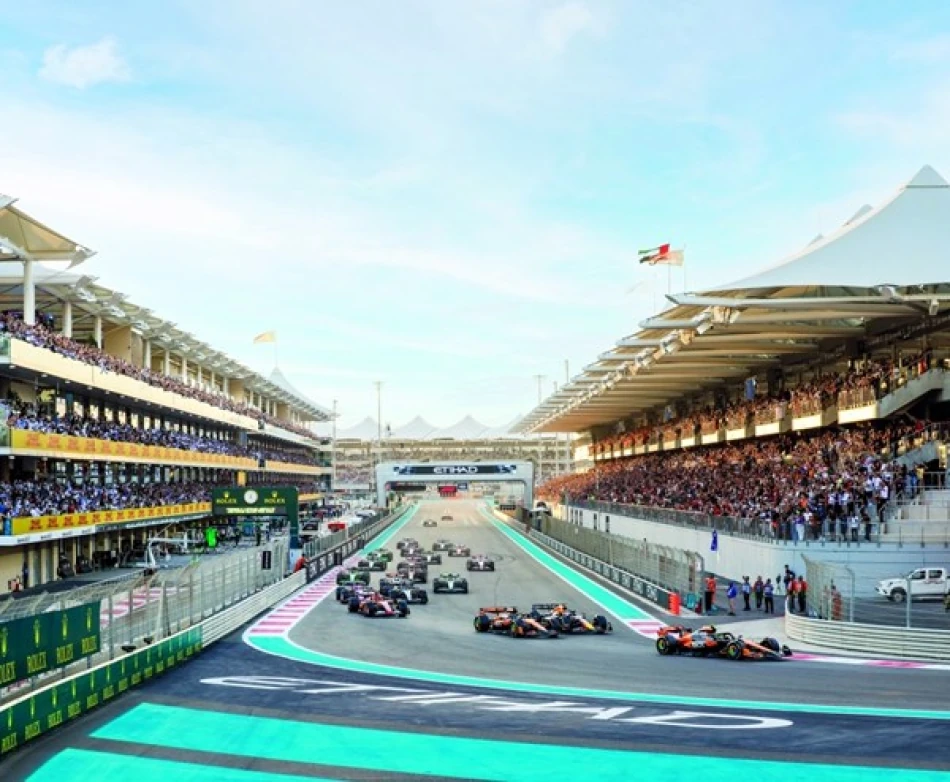
Discover Abu Dhabi's Thrilling Event Season: Immerse Yourself in an Exciting Calendar from September to Year-End
Abu Dhabi Positions Itself as Global Events Capital with Ambitious Q4 Calendar
Abu Dhabi is doubling down on its strategy to become the Middle East's premier business and entertainment hub, unveiling an unprecedented lineup of over 4,800 events spanning September through December 2025. This calculated push targets the emirate's peak tourism season, when hotel occupancy historically soars to 83% and visitor numbers exceed 1.9 million—positioning Abu Dhabi to capture lucrative business tourism revenue while diversifying its economy beyond oil.
Strategic Timing Capitalizes on Peak Season Economics
The emirate's event calendar aligns perfectly with data showing Q4 as Abu Dhabi's tourism goldmine. November 2024 achieved the year's highest occupancy rate at 83%, while December recorded peak visitor numbers at 551,000 guests. This seasonal surge generated 1.92 million hotel guests in the final four months alone, with an average occupancy of 78%—figures that dwarf many competing destinations.
The strategy mirrors successful models in Singapore and Dubai, where concentrated event seasons create economic multiplier effects. Business travelers typically spend 3-4 times more than leisure tourists, making this focus on conferences, trade shows, and corporate events a high-value proposition.
Sector Diversification Reflects Economic Vision
Energy and Technology Take Center Stage
The marquee ADIPEC 2025 conference (November 3-6) positions Abu Dhabi at the heart of global energy transition discussions. As oil-dependent economies pivot toward renewable energy, hosting this industry gathering signals the UAE's commitment to leading—rather than following—the energy transformation. The timing coincides with increased global focus on sustainable energy solutions and climate action.
The AM Conclave and ADMAT Middle East expo (September 24-25) targets the growing additive manufacturing and 3D printing sectors, aligning with the UAE's Industrial Strategy 2031 goals to boost manufacturing's GDP contribution from 9% to 20%.
Defense and Security Positioning
The Ajban Defense Industry and Technology Exhibition (September 23-24) reflects the UAE's growing ambitions as a regional defense hub. With Middle East military spending exceeding $150 billion annually, capturing even a small percentage of this market through local partnerships and manufacturing could generate substantial economic returns.
Cultural and Luxury Events Drive High-Value Tourism
The 20th Abu Dhabi International Hunting and Equestrian Exhibition (August 30-September 7) and luxury fragrance showcase Tayyeb Al Hazm (September 25-October 5) target ultra-high-net-worth individuals—a demographic that generates outsized economic impact despite smaller numbers.
The Formula 1 Etihad Airways Abu Dhabi Grand Prix (December 4-7) remains the crown jewel, typically generating over $400 million in economic impact while showcasing Abu Dhabi to a global television audience of 400 million viewers.
Innovation and Future-Focused Events Signal Ambition
The Future Games (December 18-23) represents a bold bet on the convergence of physical and digital sports—a rapidly growing sector that appeals to younger demographics and positions Abu Dhabi as forward-thinking. This "phygital" approach could establish the emirate as a pioneer in next-generation entertainment formats.
The Global Science Exhibition (September 29-October 1) and IUCN World Conservation Congress (October 9-15) demonstrate commitment to knowledge economy development and environmental leadership—crucial for attracting international organizations and sustainable investment.
Investment Implications and Market Outlook
This events blitz represents significant infrastructure utilization at ADNEC Abu Dhabi and Yas Island venues, likely generating strong returns on previous capital investments. The strategy also supports the broader Abu Dhabi Economic Vision 2030, which targets 8.7 million annual visitors.
For investors, the focus on business events suggests confidence in corporate travel recovery and positions Abu Dhabi to capture market share from traditional hubs like Hong Kong and Singapore, which faced pandemic-related disruptions.
The diverse sector coverage—from healthcare conferences to jewelry exhibitions—indicates sophisticated market segmentation designed to maximize venue utilization year-round. This approach reduces dependence on any single industry while creating cross-pollination opportunities between sectors.
Regional Competition and Differentiation
Abu Dhabi's strategy directly challenges Dubai's events dominance while offering a more premium, less crowded alternative. The emphasis on specialized B2B conferences over mass consumer events suggests targeting higher-margin opportunities that generate greater economic value per visitor.
The timing also capitalizes on Saudi Arabia's NEOM and other giga-projects still being under construction, allowing Abu Dhabi to capture regional business tourism before new competition fully materializes. This first-mover advantage in the post-pandemic events landscape could establish lasting market position.
Most Viewed News

 Layla Al Mansoori
Layla Al Mansoori






